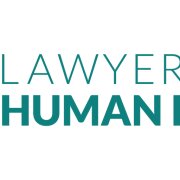Best Civil & Human Rights Lawyers in Johannesburg
Share your needs with us, get contacted by law firms.
Free. Takes 2 min.
List of the best lawyers in Johannesburg, South Africa
About Civil & Human Rights Law in Johannesburg, South Africa
Johannesburg, South Africa, is a vibrant city that reflects the diverse tapestry of the nation. As part of South Africa, Johannesburg is governed by a legal framework that is deeply influenced by the country's commitment to upholding civil and human rights. These rights are enshrined in the South African Constitution, considered one of the most progressive in the world. Civil rights focus on the personal liberties of citizens, including freedom of speech, the right to privacy, and equality before the law. Human rights, on the other hand, are broader and encompass rights such as access to healthcare, education, and dignity. The city has a variety of institutions, both governmental and non-governmental, that work towards protecting these rights and addressing violations.
Why You May Need a Lawyer
There are several situations where individuals may require legal assistance in the field of civil and human rights. Common scenarios include facing discrimination at work, being denied access to public services or facilities, violations of privacy, unlawful detention, or any other form of human rights abuse. Understanding and navigating the legal system can be complex and intimidating, and a lawyer specialized in this field can offer valuable advice, represent individuals in court, and ensure that their rights are protected.
Local Laws Overview
In Johannesburg, as in the rest of South Africa, the key legal document pertaining to civil and human rights is the Constitution, particularly its Bill of Rights. This section of the Constitution outlines the rights to equality, human dignity, privacy, and freedom of expression, amongst others. Johannesburg also adheres to national laws such as the Promotion of Equality and Prevention of Unfair Discrimination Act (PEPUDA) and the Protection of Personal Information Act (POPIA), which further bolster the rights of individuals and provide mechanisms to address grievances related to rights violations.
Frequently Asked Questions
What are my rights if I experience discrimination?
Under the South African Constitution and PEPUDA, you have the right to fair treatment without discrimination based on race, gender, disability, or other specified grounds. Legal channels exist to address and rectify such situations.
Can I access legal aid for civil and human rights cases?
Yes, Legal Aid South Africa provides assistance to those who qualify by offering free or subsidized legal services. There are also various NGOs in Johannesburg that offer legal support for civil and human rights issues.
What should I do if my privacy has been violated?
Under POPIA, you have the right to confidentiality and the protection of your personal information. You can lodge a complaint with the Information Regulator or seek legal advice for further action.
How can I ensure my right to a fair trial?
Every individual has the right to a fair trial under South African law. If you believe your right is compromised, a lawyer can provide guidance and represent you in court to ensure due process.
Are there specific laws protecting LGBTQ+ rights?
Yes, South Africa’s Constitution prohibits discrimination based on sexual orientation, and LGBTQ+ rights are a recognized part of the civil rights landscape. Legal recourse is available for any violations.
What are my rights when dealing with the police?
You have the right to remain silent, to legal representation, and to be treated with dignity and respect. If these rights are violated, there are legal remedies available.
Can I challenge unfair labor practices?
Yes, labor laws in South Africa protect against unfair dismissal and labor practices. The Commission for Conciliation, Mediation, and Arbitration (CCMA) is a resource for addressing these issues.
What steps can be taken if public services deny me access based on discrimination?
PEPUDA provides a framework to legally challenge such discrimination and ensures equal access to public services for all citizens.
How can human rights activists operate within the legal framework?
Activists are protected under the right to freedom of association and peaceful assembly, as stipulated by the Constitution, allowing them to advocate for rights legally and safely.
What should I do if I witness human rights violations?
It's important to document the incident and report it to relevant authorities or human rights organizations that can take action or provide guidance on the best steps forward.
Additional Resources
Individuals seeking assistance with civil and human rights issues in Johannesburg can reach out to various institutions and organizations. Notable resources include:
- Legal Aid South Africa: Offers free legal services to those who qualify.
- South African Human Rights Commission (SAHRC): Provides support for reporting and addressing rights violations.
- Centre for Human Rights at the University of Pretoria: Provides educational resources and legal advice.
- ProBono.Org: A non-profit organization that offers pro bono legal services.
- The Commission for Conciliation, Mediation, and Arbitration (CCMA): Assists with labor disputes.
Next Steps
If you need legal assistance with a civil or human rights issue in Johannesburg, start by documenting all relevant events and communications related to your case. Contact one of the recommended resources or legal organizations for an initial consultation. Assess your eligibility for legal aid if cost is a concern and ensure to choose a lawyer who specializes in civil and human rights to increase the likelihood of a favorable outcome. Remember, understanding your rights is the first step towards ensuring they are upheld and protected.
Lawzana helps you find the best lawyers and law firms in Johannesburg through a curated and pre-screened list of qualified legal professionals. Our platform offers rankings and detailed profiles of attorneys and law firms, allowing you to compare based on practice areas, including Civil & Human Rights, experience, and client feedback.
Each profile includes a description of the firm's areas of practice, client reviews, team members and partners, year of establishment, spoken languages, office locations, contact information, social media presence, and any published articles or resources. Most firms on our platform speak English and are experienced in both local and international legal matters.
Get a quote from top-rated law firms in Johannesburg, South Africa — quickly, securely, and without unnecessary hassle.
Disclaimer:
The information provided on this page is for general informational purposes only and does not constitute legal advice. While we strive to ensure the accuracy and relevance of the content, legal information may change over time, and interpretations of the law can vary. You should always consult with a qualified legal professional for advice specific to your situation.
We disclaim all liability for actions taken or not taken based on the content of this page. If you believe any information is incorrect or outdated, please contact us, and we will review and update it where appropriate.
Browse civil & human rights law firms by service in Johannesburg, South Africa
Johannesburg, South Africa Attorneys in related practice areas.















